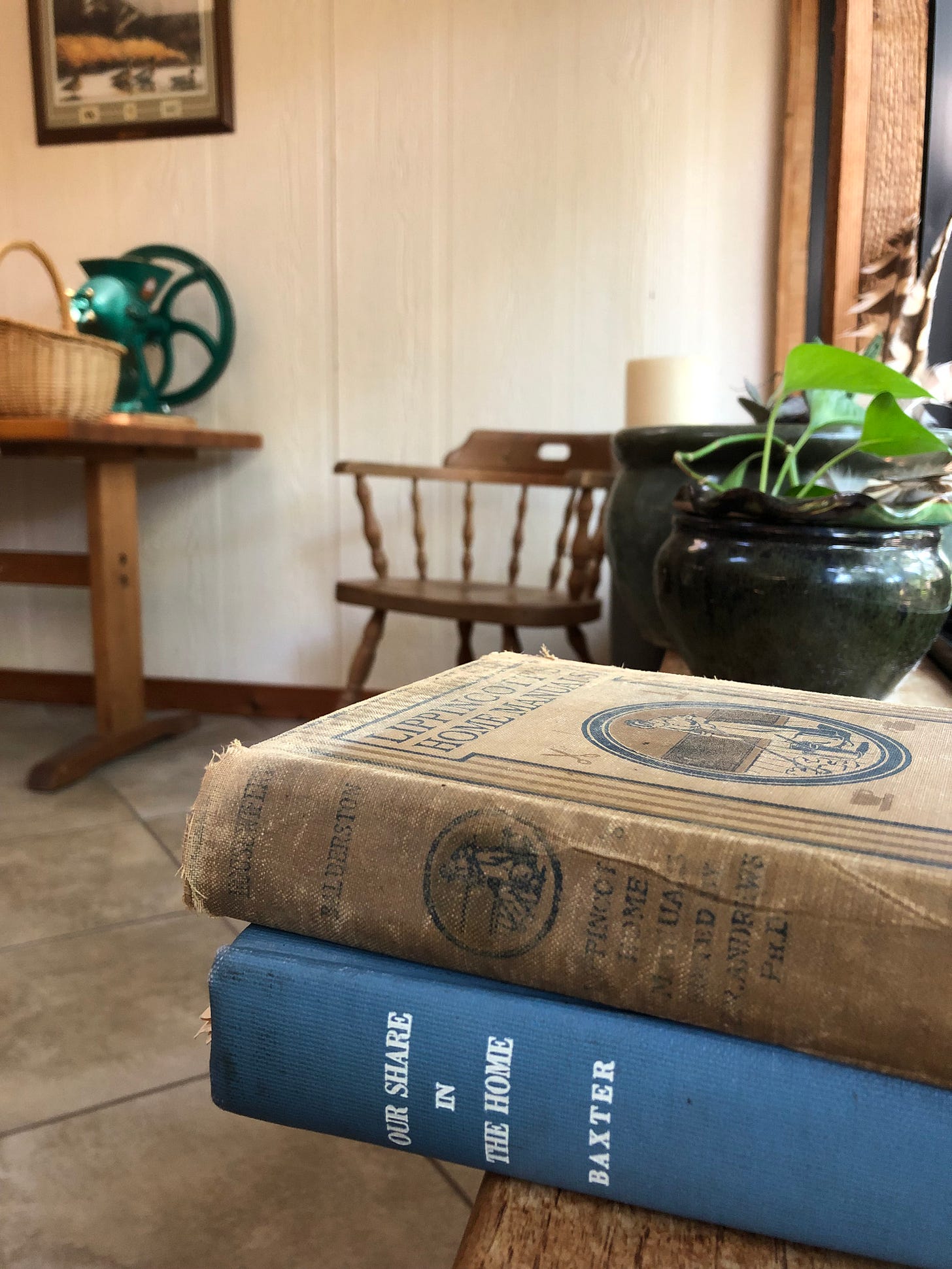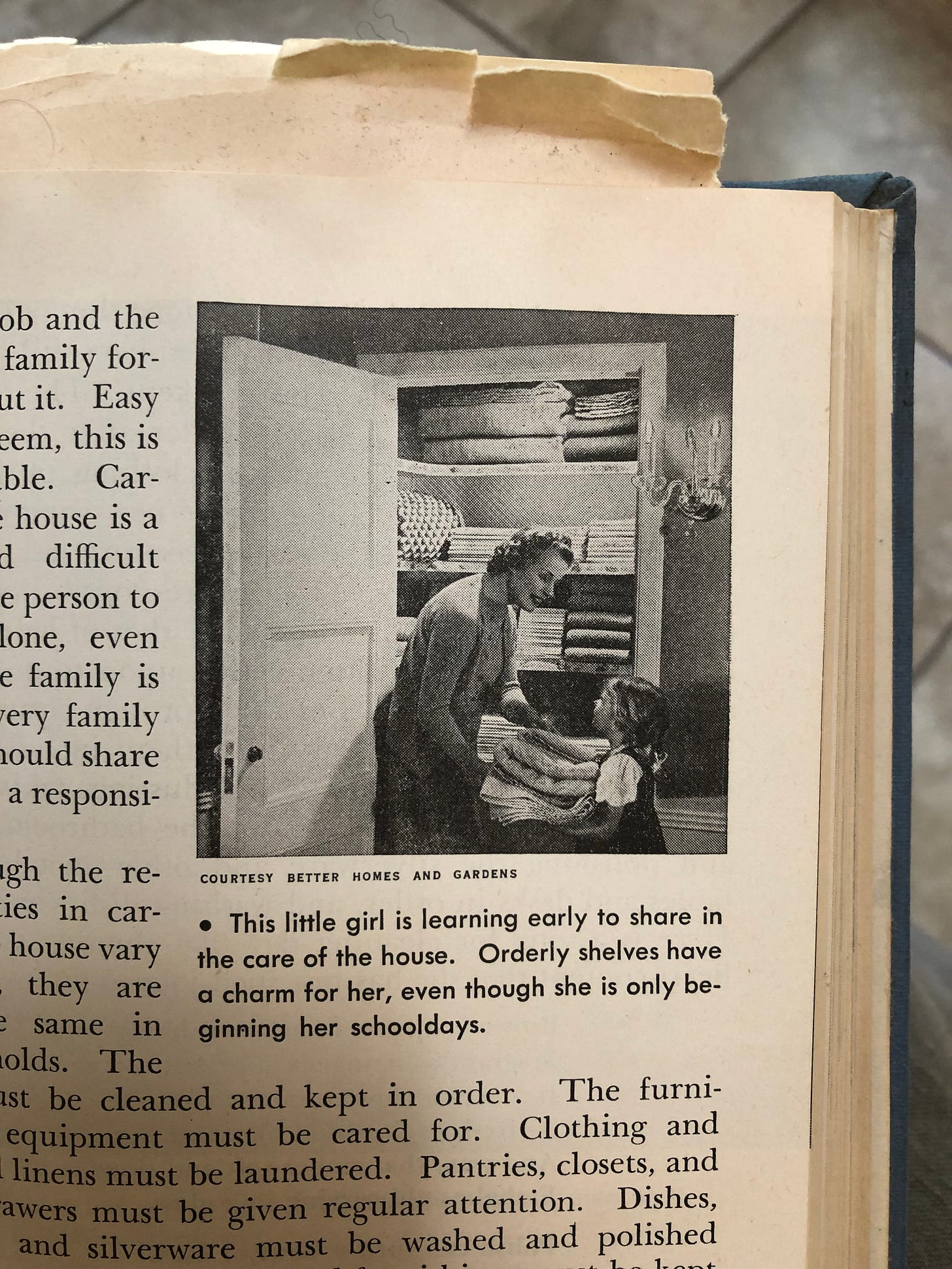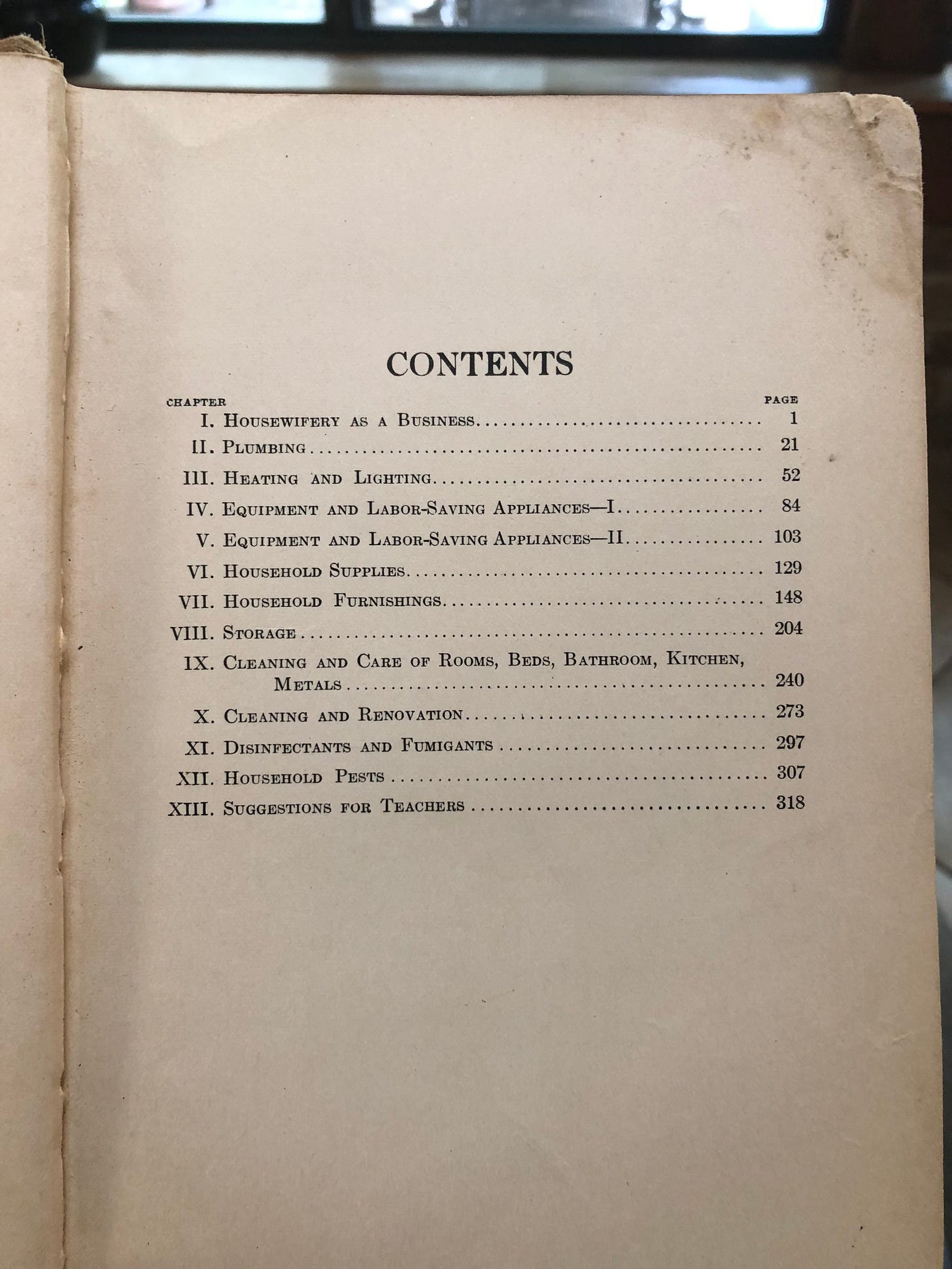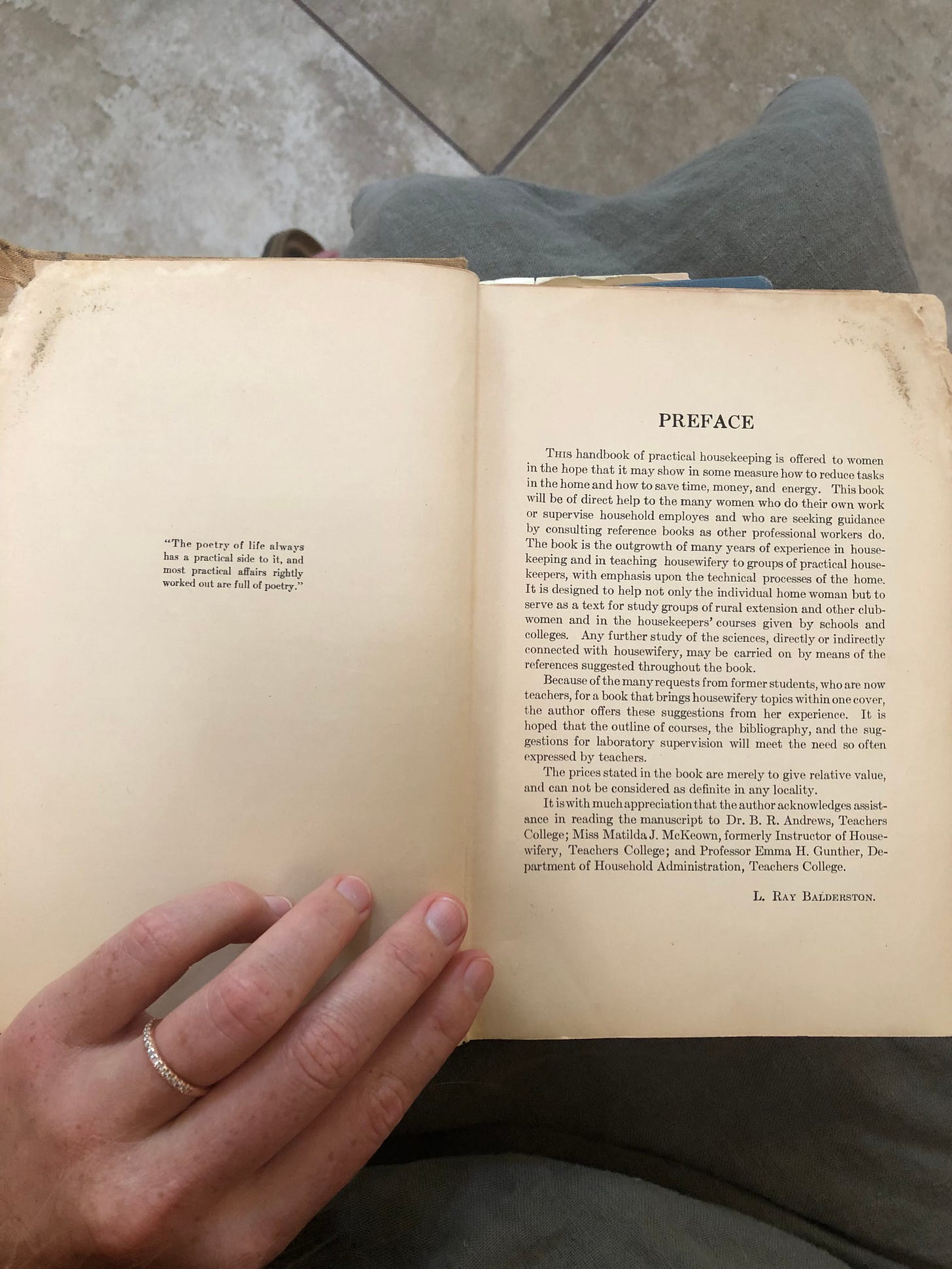Our place in the home
bringing back the old ways for a higher quality of life for all

I’ve always loved a good vintage home economics textbook. Kevin and I go to a fair number of estate sales, and whenever I see one, I snatch it right up. Seldom do I get caught up in these gems, per se, but on occasion I will flip through them to pick up a few tips and be reminded of the honor and pride that womanhood once held in the culture. The standards to which we once held ourselves in terms of skill, industriousness, and dedication to our unique role. What, you ask? But weren’t women just recently liberated from the oppression of the old ways, those archaic chains which bound us?
Herein lies the true colors of feminism. When asked what those chains bound us to, it very quickly becomes apparent that they bound us to our homes and families. Feminism lies entirely on the premise that our homes and families are not good, not worthwhile. Below us. What the women of recent generations were told was a binding chain was exactly that which held our homes and families together. It was our unique and honorable duty. We once took pride in it, bought textbooks about it, and carefully taught it to our daughters so that they would carry on our craft.
I often find myself coming back to the following image during conversations about homemaking: Imagine that every household had a functional adult who was entirely dedicated to the household’s wellbeing. This person knows every family member’s unique needs and tastes and puts themselves to the task of keeping them well nourished and clothed. This person largely sets the tone and culture of the household, developing a unique dynamic that highlights the talents of each of its members and encourages their growth. The house takes on a unique aesthetic which directly reflects the family’s culture and interests. This person minds all the little details involved in running the home, and as a result, the other family members can keep focused on their unique roles in society. Less energy is wasted, as everyone needs to be fed, housed, and clothed but only one uniquely qualified and skilled person is directly responsible for these things. Every person in the house feels well nurtured, listened to, and safe.

Can you see how this role would positively impact society? Society is only as strong as the homes and families which it is made of. This person— the homemaker— ensures homes which are healthier, better nourished, and better nurtured. Imagine a society made up of healthy, well nourished, and well nurtured people! I propose we bring vision and duty back into our homes. Let’s view it as a true craft again. An honorable one. Let’s make it a respectable profession in which we can regard ourselves as truly successful when we do it well.
I was reading a book before bed last night, and one of the thoughts conveyed really stuck with me. It said that in order to be a good worker, your aim should be to clear the path for your bosses and coworkers— to make yourself as helpful as humanly possible to everyone in your organization without minding who the credit goes to. Should you invest in such a work ethic, you will one day find yourself an absolutely indispensable member of the organization, appreciated and rewarded generously. And, to return to the analogy of clearing the path: “The one who clears the path determines its direction.” What an impactful concept.
So, with all of that in mind— What does success in homemaking look like to you?
I see well-honed processes to automate cyclical tasks like preparing meals, doing laundry, watering plants, and sweeping floors. Routines that are assigned to certain days, times, or transitions— like meal planning on Sundays or cycling laundry after meals. Having these processes in place eliminates making decisions needlessly from day to day, leaving me more bandwidth to apply towards things I am more passionate about, like nurturing relationships within and outside of the home, and creating beauty.
I see well-curated possessions, each of which serves a purpose, has a place of honor, and holds heirloom quality.
I see contentment. Nurturing the positive aspects of wherever I am, whether it is perfect or not. Moving the situation in a positive direction wherever the starting point may be.
I see a family culture founded on sound principles, sovereignty, rightness, and the pursuit of Truth.
I see the thought and effort I put into my work making life simpler and higher quality for my family, so that they can pursue their purposes freely. (Clearing the path, remember?)
I see humans who are well nourished and healthy in every way, contributing their best to the world.
I see a return to the old ways, with homemaking regarded as a serious profession, resulting in a higher quality of life for all. What do you see?







